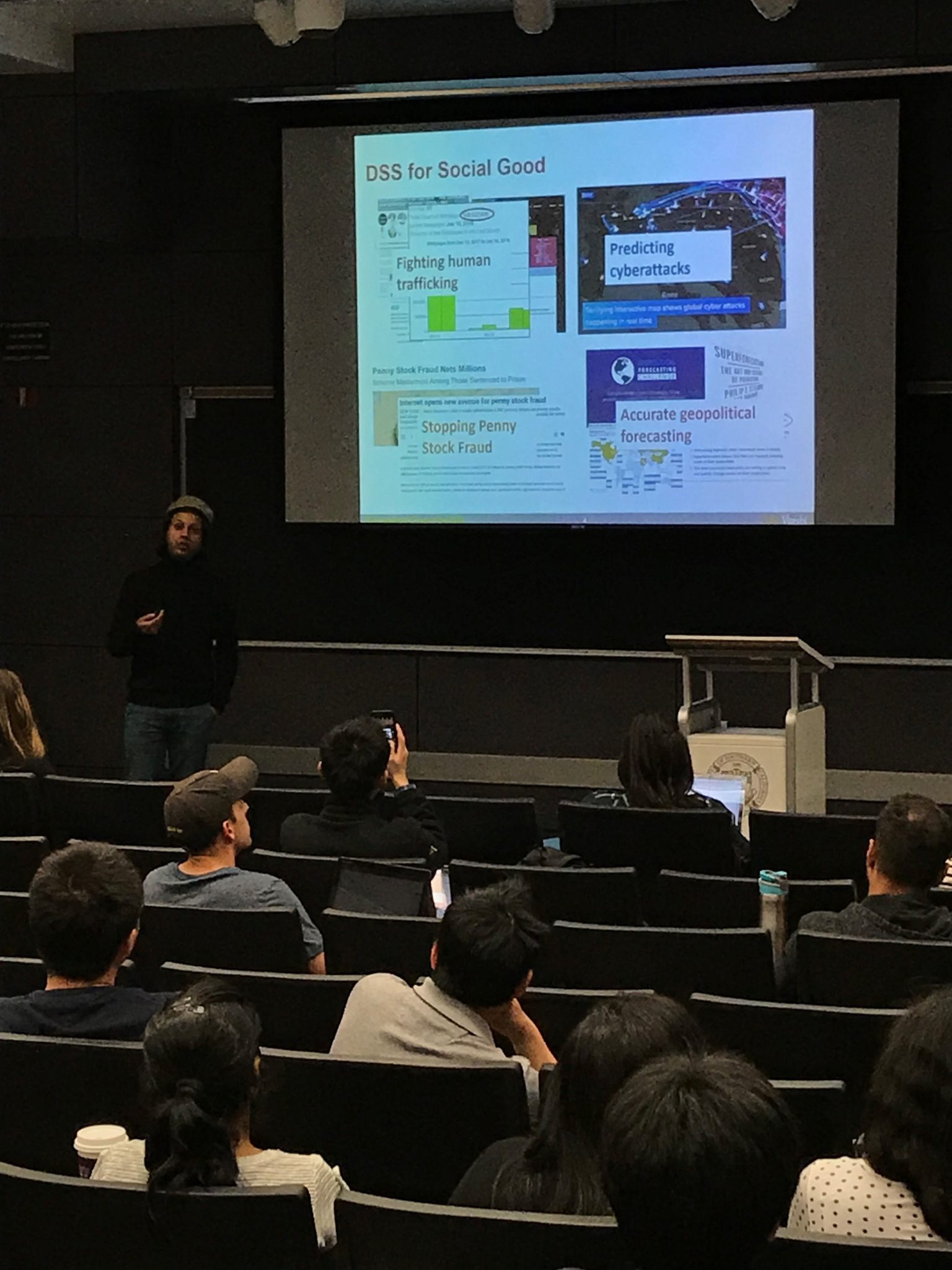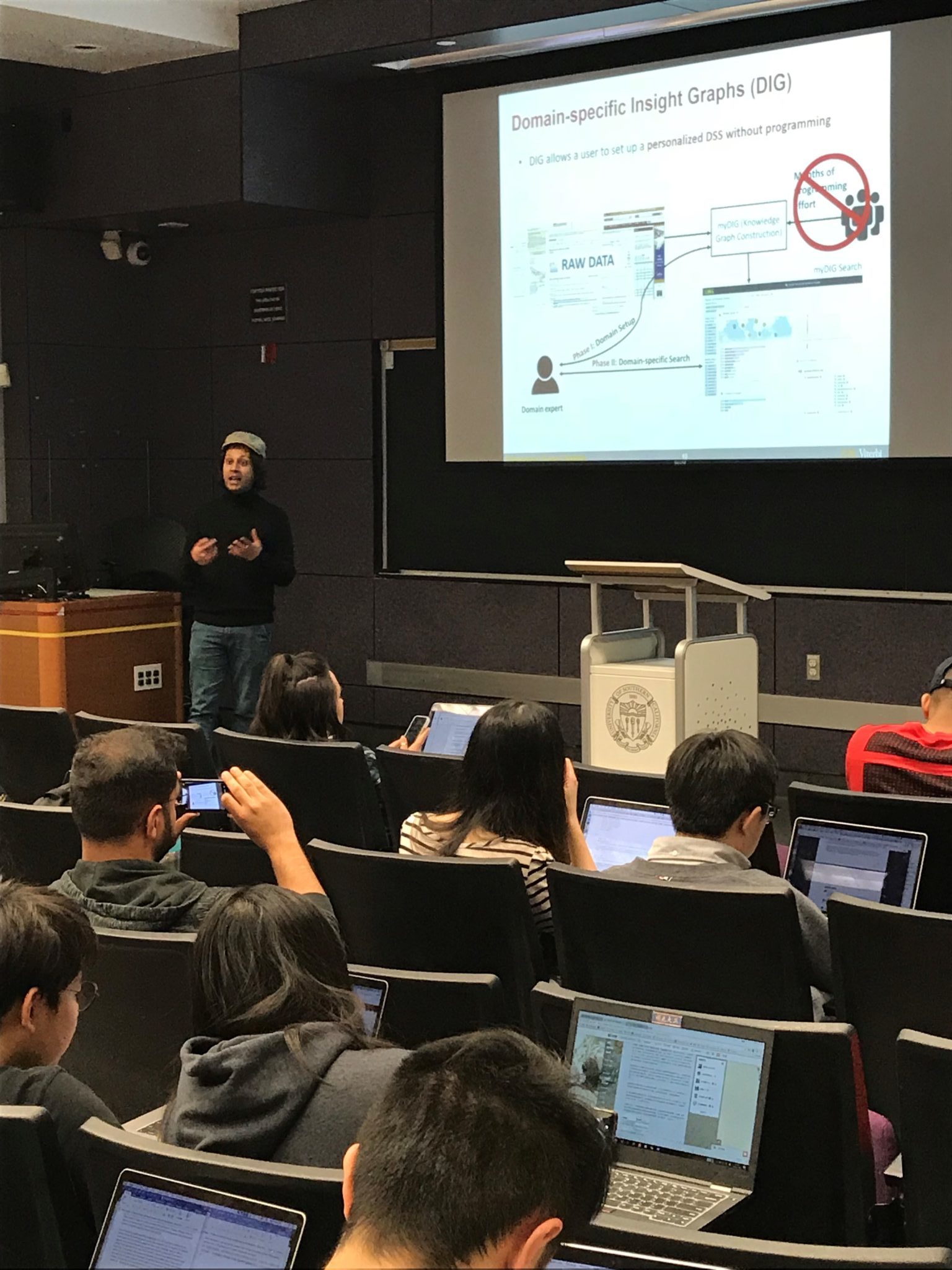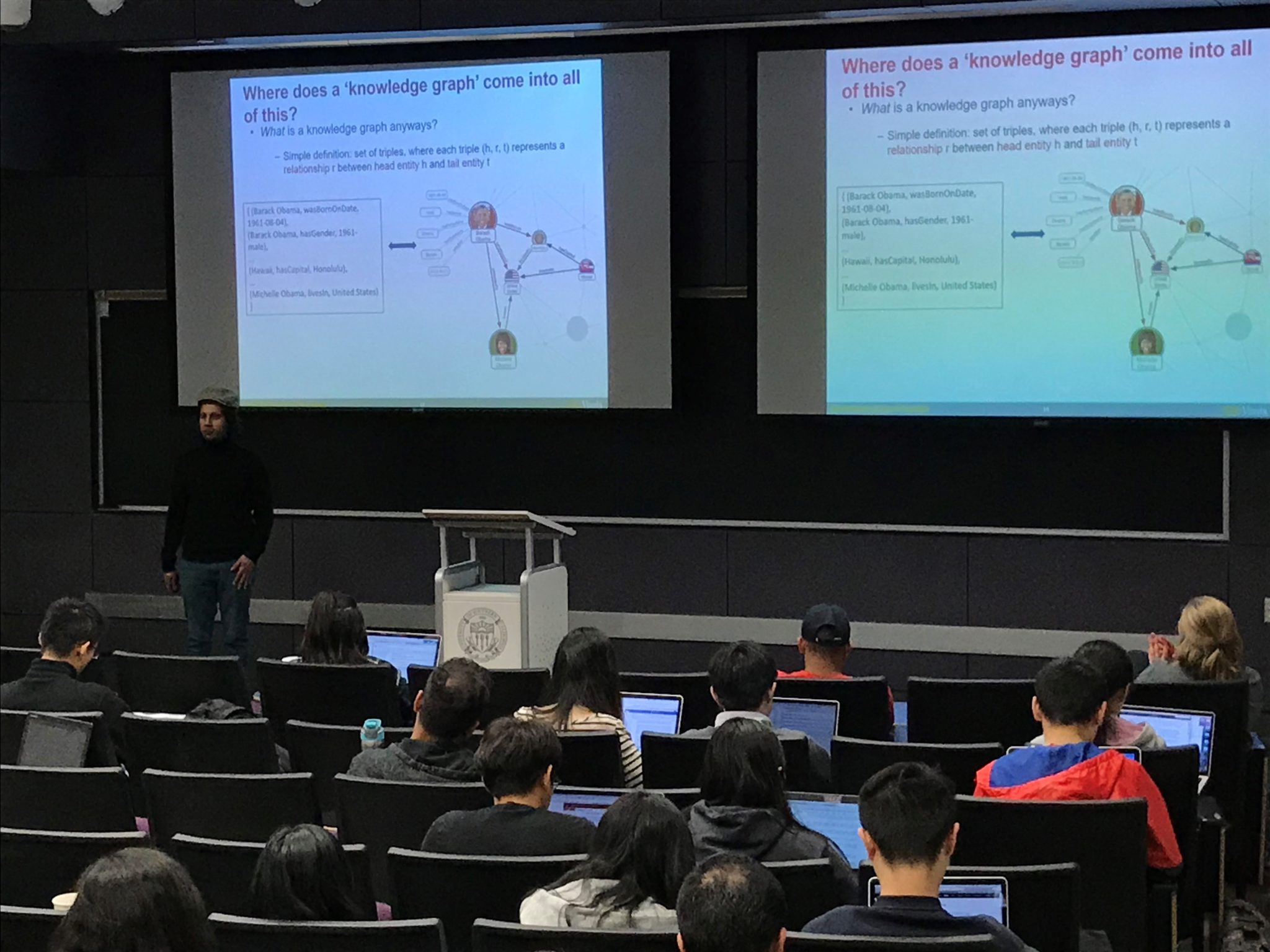
Dr. Kejriwal discusses how domain specific search (DSS) can be used for social good.
Dr. Mayank Kejriwal, of USC Information Sciences Institute, lectured on his work involving domain specific search (DSS) for social good. The main project he discussed is funded under the Defense Advanced Research Projects Agency (DARPA) Memex program and is aimed at combating human trafficking through the development of software which advances the way we search for content-specific information online. Dr. Kejriwal explained there are currently tens of millions of sex advertisements online in the United States alone (this is excluding the dark web). In order to make it easier for law enforcement and agencies to investigate sex trafficking cases there is a need for more powerful search engines. The current issues are that the current systems understand entities not text, make mistakes, and oftentimes users need further incentive to train machines to become more accurate.

As an answer to these issues, Dr. Kejriwal uses knowledge graphs, which enhances search engine results based on information from various sources, to make it easy to construct and search a domain specific knowledge graph over text, web pages, and tables. His project, Domain-specific Insight Graphs (DIG) allows a user to set up a personalized DSS without programming.This program had many contributors ranging from Amazon web services to spaCy. DIG allows for the gathering of information of human trafficking on the open web. Content can be accessed from different websites (i.e., Backpage, Craigslist, etc.) associated with phone numbers linked to sex ads and information. These entities are actually clickable and the database allows users to recognize mistakes in the system quickly. This ensures a 95% accuracy rate for the database as a whole. DIG was able to collect 150 million sex ads over the course of 3 years.

The system contributed to less victimization and an increased amount of human trafficking investigations. It was used in over 100 law enforcement offices and has resulted in 3 convictions thus far. This database was also used for other issues including narcotics, counterfeit electronics manufacturing, securities fraud, mail shipment fraud, and illegal weapons sales. Investigators on these issues were able to customize their domain in just one day and with less than an hour of training on the database. This database’s wide and varied usage makes it clear that society can benefit from the use of knowledge graphs for numerous social good issues.



